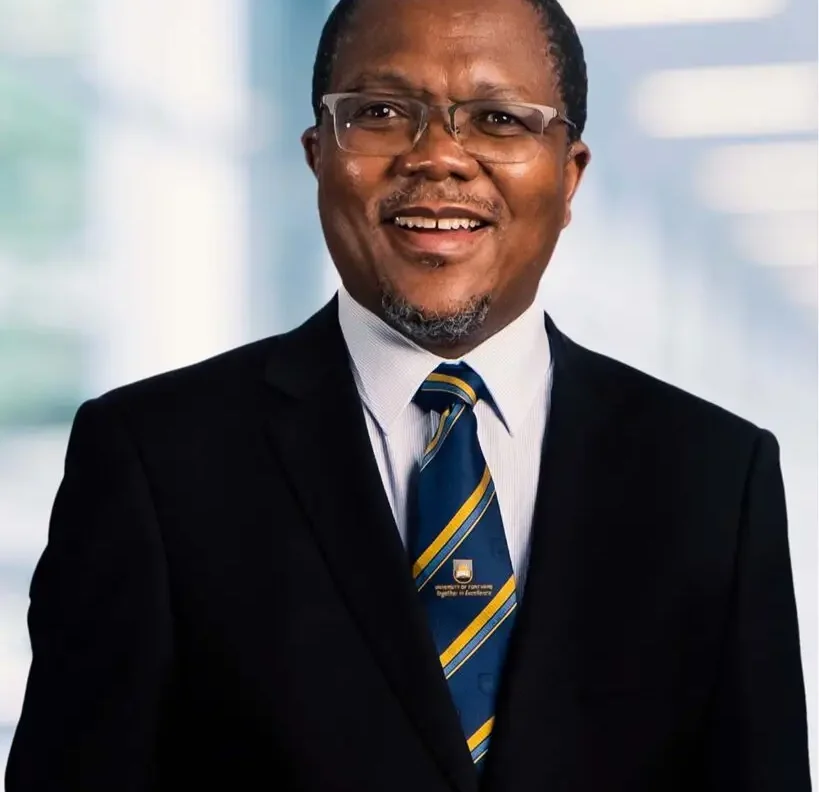Who is Sakhela Buhlungu?: University of Fort Hare VC amid turmoil

University of Fort Hare Vice Chancellor, Professor Sakhela Buhlungu. Photo Credit- Fort Hare Foundation
Maxwell Sakhela Buhlungu, a prominent South African sociologist and academic leader, has been the Vice-Chancellor and Principal of the University of Fort Hare (UFH) since January 2017, when he succeeded Mvuyo Tom. Born in 1960, Buhlungu, now 65, was confirmed for a second term in November 2021, a decision that has fueled recent student unrest at the historic Eastern Cape institution. His tenure has been marked by a relentless fight against corruption and governance failures, but it has also been plagued by violent threats, murders of colleagues, and factional infighting, transforming his leadership into a high-stakes battle for institutional survival. As protests escalate, culminating in arson attacks on key buildings this week, Buhlungu remains at the epicenter, embodying both the promise of reform and the perils of challenging entrenched power structures in South African higher education.
Buhlungu’s academic journey is rooted in sociology, with a focus on labor movements, social change, and transformation in post-apartheid South Africa. He earned a BA in History and Political Science from the University of Transkei (now Walter Sisulu University) in 1982, a BA Honours in African Studies from the University of Cape Town (UCT) in 1986, a Master’s in Industrial Sociology from the University of the Witwatersrand (Wits) in 1996, and a PhD in Sociology from Wits in 2002. His scholarly work, including books on trade unions and social movements, has positioned him as a key voice in debates on inequality and worker rights. Before UFH, Buhlungu served as Deputy Dean of Humanities and Social Sciences at the University of Pretoria and later as Dean of Humanities at UCT, roles that honed his administrative acumen amid diverse academic challenges.
Upon arriving at UFH, a cradle of African nationalism that educated figures like Nelson Mandela and Robert Sobukwe, Buhlungu inherited a scandal-ridden institution reeling from corruption scandals, including a 2016 Special Investigating Unit probe into procurement irregularities. True to his whistleblower ethos, he reported potential graft to authorities in 2018, sparking a backlash. In 2019, a factionalized university council, comprising just nine of 31 members, suspended him on dubious grounds, leading Higher Education Minister Naledi Pandor to dissolve the council and place UFH under administration for 12 months. An independent report by Chris Brink and Louis Molamu cleared Buhlungu of wrongdoing, lambasting the council for undermining him through factionalism. His “turnaround strategies” have since stabilized finances and rooted out graft, earning praise from some quarters, but critics, including suspended Student Representative Council (SRC) president Aphelele Khalakahla, decry his extended term as “unlawful” for lacking student consultation.
The darker undercurrents of Buhlungu’s leadership have unfolded in a wave of violence, turning UFH into a hotspot of alleged criminal syndicates and political interference. In March 2021, gunshots were fired at his deputy vice-chancellor’s home in Alice; 18 months later, in January 2023, his bodyguard and driver was gunned down outside Buhlungu’s official residence, prompting his relocation to a “safe house.” Buhlungu has publicly accused a syndicate of politicians and business figures of orchestrating these attacks to force his resignation, claiming informal pressure tactics and threats that have left him “never knowing peace.” In a 2024 interview, he appealed directly to President Cyril Ramaphosa for protection, revealing a “crusade for justice” that involved presidential intervention and ministerial visits. The murders of two UFH employees in 2022, linked to internal power struggles, further scarred his tenure, with investigations ongoing but convictions elusive.
Today, as UFH grapples with a campus shutdown following petrol-bomb attacks on administrative buildings, Buhlungu’s position hangs in the balance. Students, marking his 65th birthday in September 2025, issued a seven-day ultimatum for his retirement, citing governance opacity. Yet, Buhlungu persists, viewing his role as a moral imperative to safeguard UFH’s legacy against “thieves and mafia leaders.” His story is a microcosm of South Africa’s higher education woes: a clash between reformist zeal and systemic rot, where academic integrity collides with violent resistance. As investigations into the latest arson unfold, Buhlungu’s resilience, forged in sociology’s lens on social movements, may yet define UFH’s next chapter.

